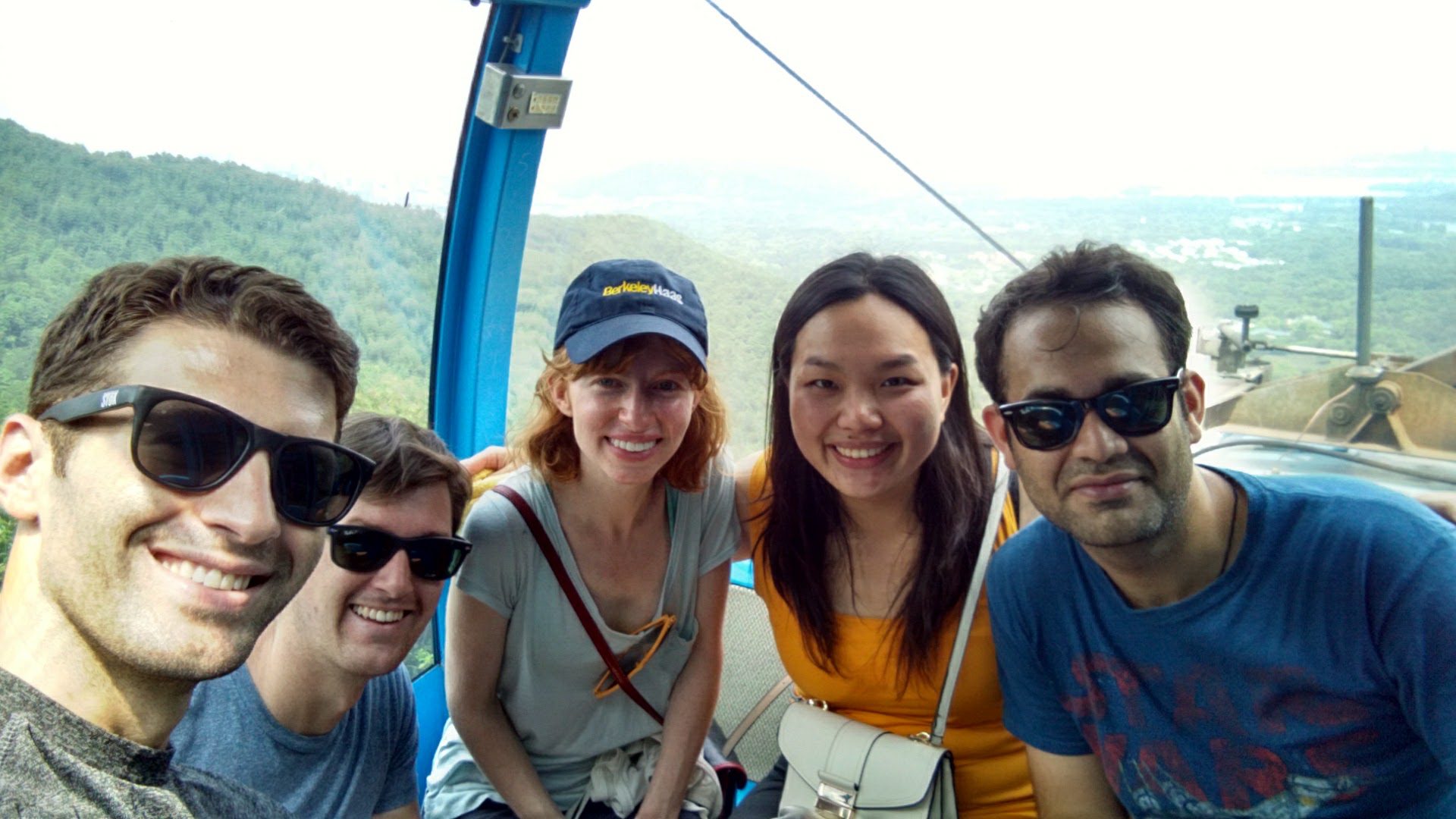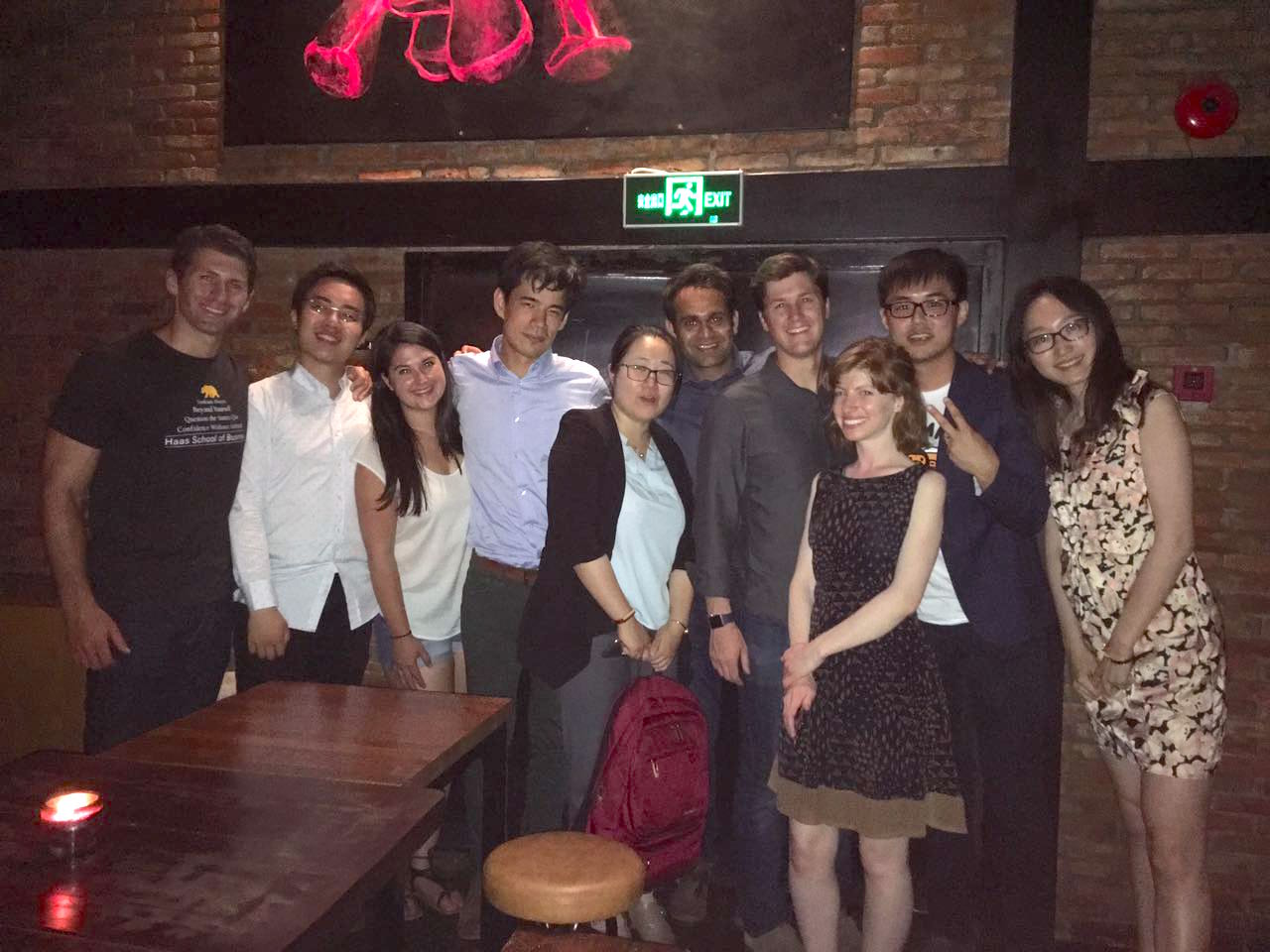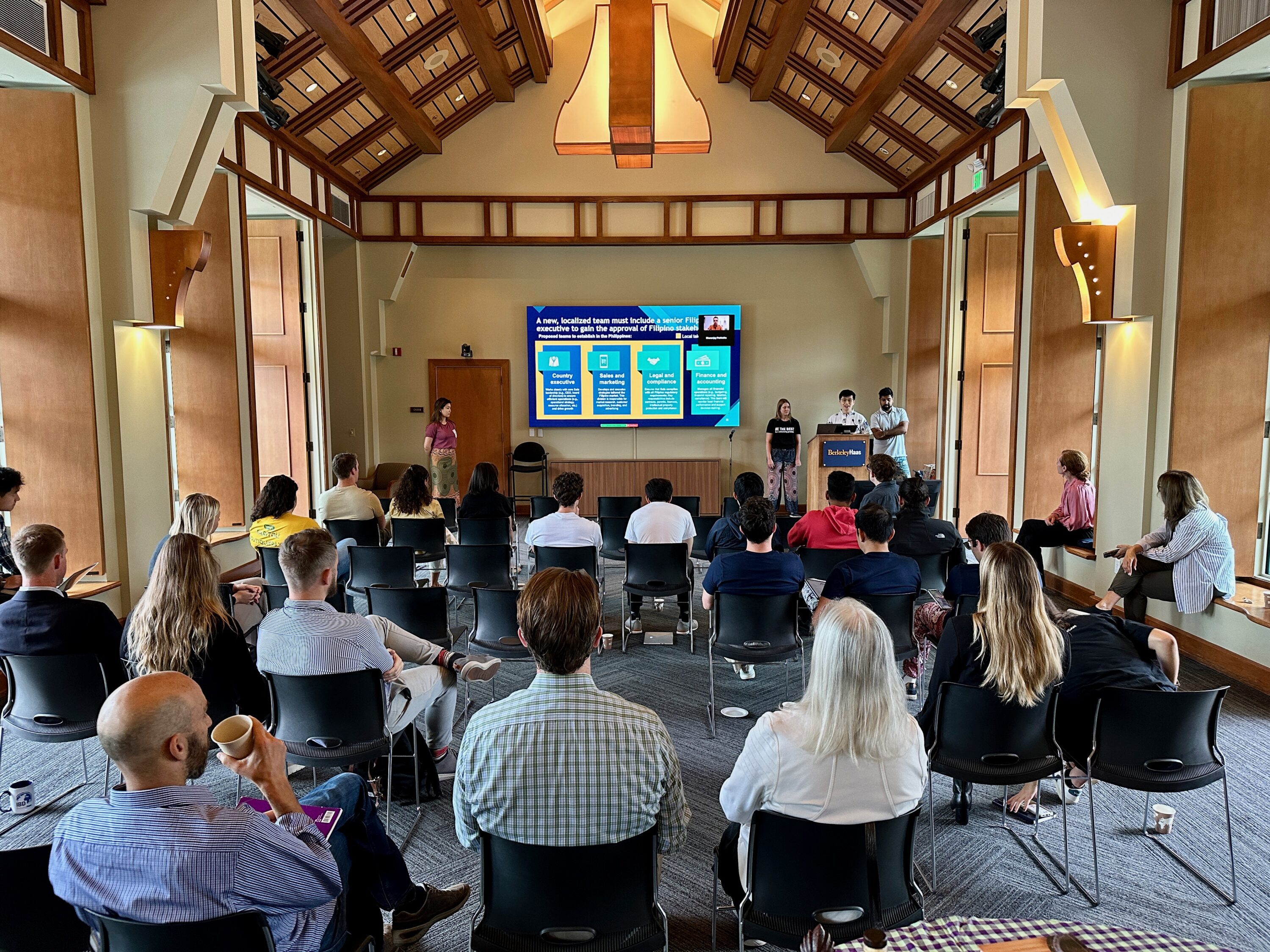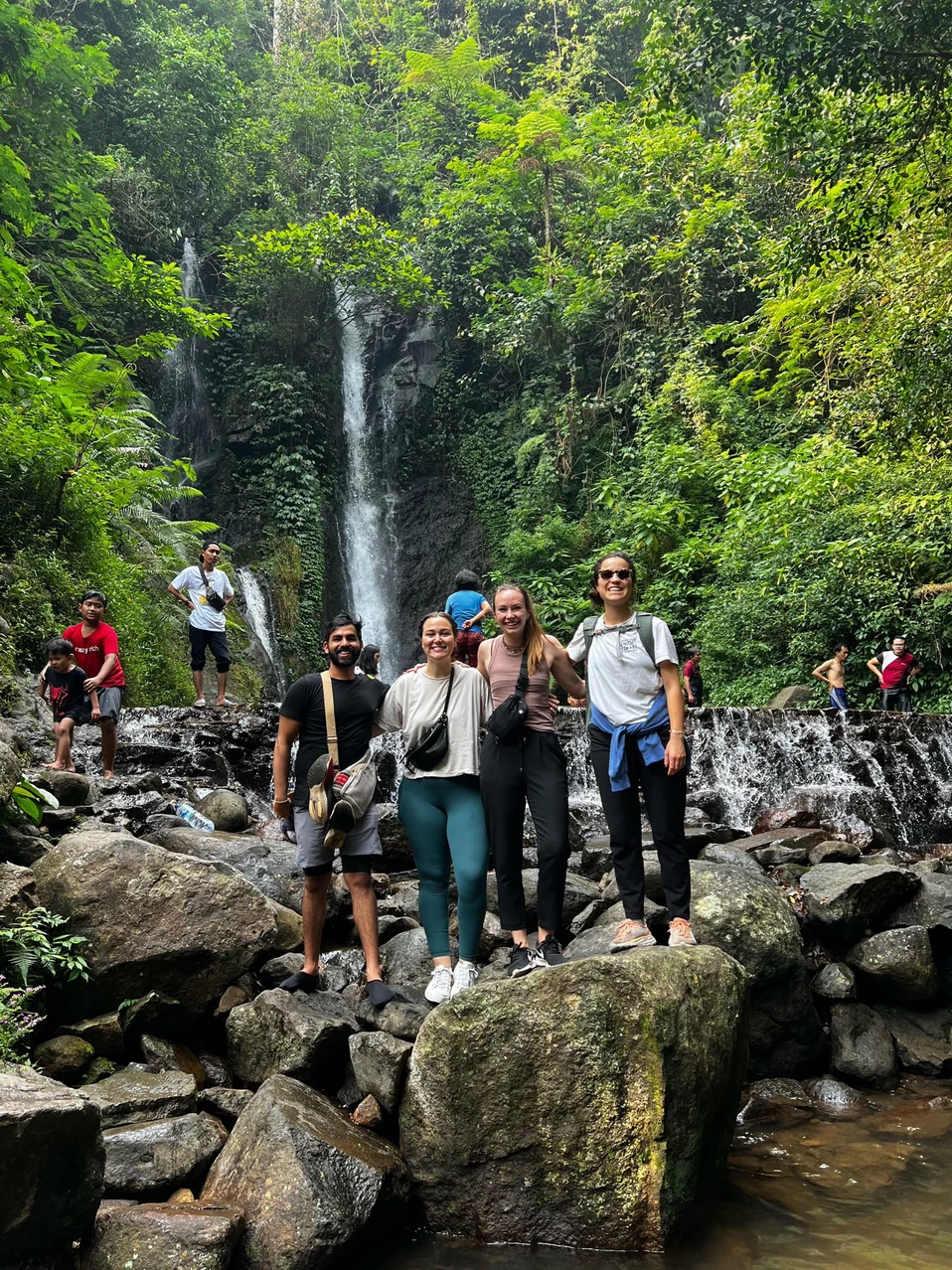Updates from IBD Shanghai – ARM Accelerator
Written by Harsh Thusu, Jennifer Hoss, Justin Wedell, Chris Roberts, and Amanda Eller
FTMBA students Harsh Thusu, Jennifer Hoss, Justin Wedell, Chris Roberts, and Amanda Eller traveled to Shanghai, China during summer 2017 to work with ARM Accelerator.
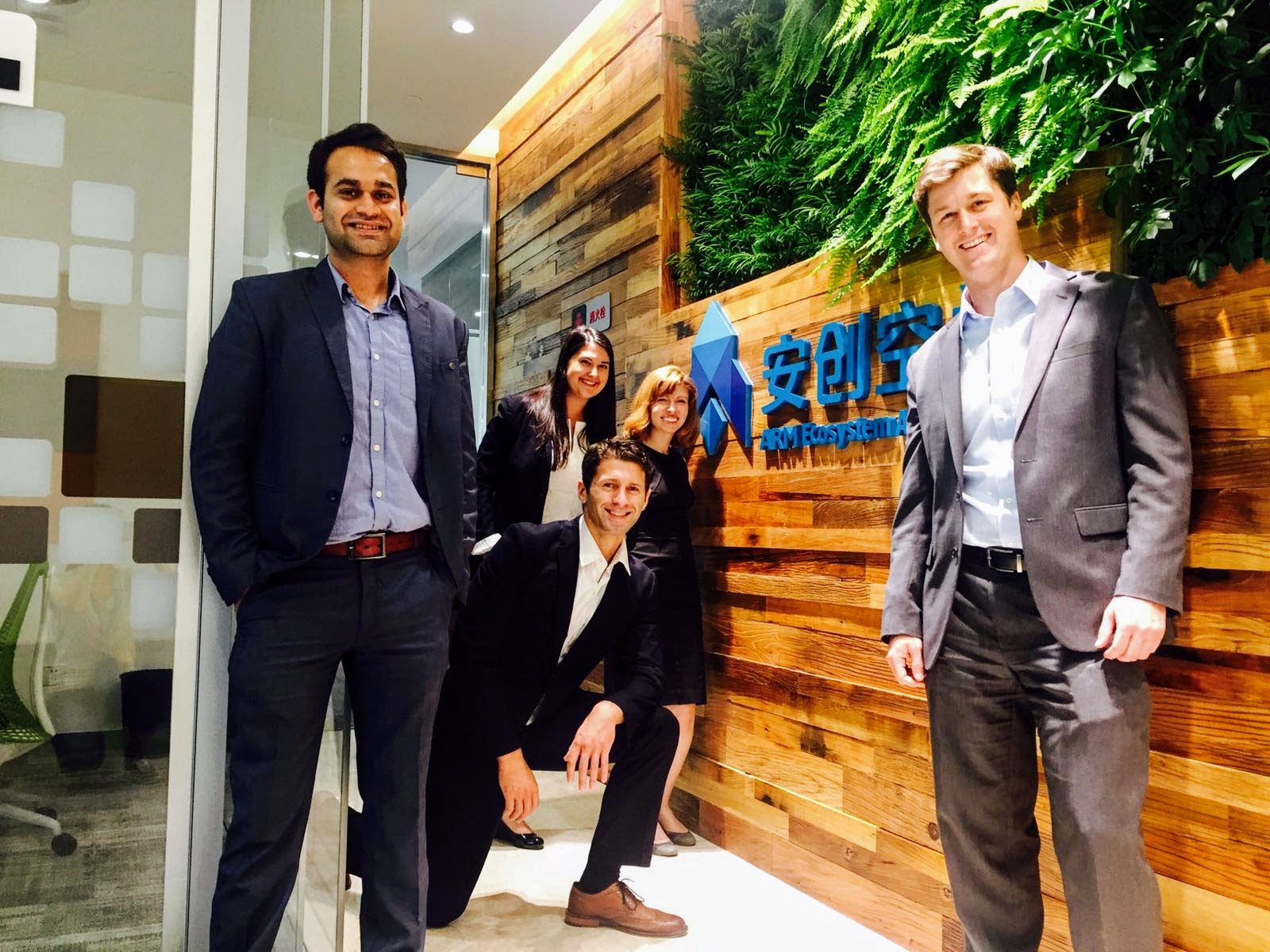
The Internet of Things (IoT) involves embedding objects in our surroundings with sensors, which capture data and make decisions without the need for human intervention. IoT is poised to change the world, and our client, ARM, is playing a major role in the IoT revolution. ARM is a multinational semiconductor company that designs architecture for the chips that power our smartphones and tablets. Over the next 20 years, ARM expects to deliver 1 trillion chips for IoT devices.
Two years ago, ARM China launched the ARM Accelerator to support IoT startups. Our five-person IBD team traveled to Shanghai to work with ARM Accelerator, helping them develop a strategy to attract Silicon Valley startups, and crafting a plan to diversify their revenue sources.
Initial Research: Bringing Silicon Valley to China
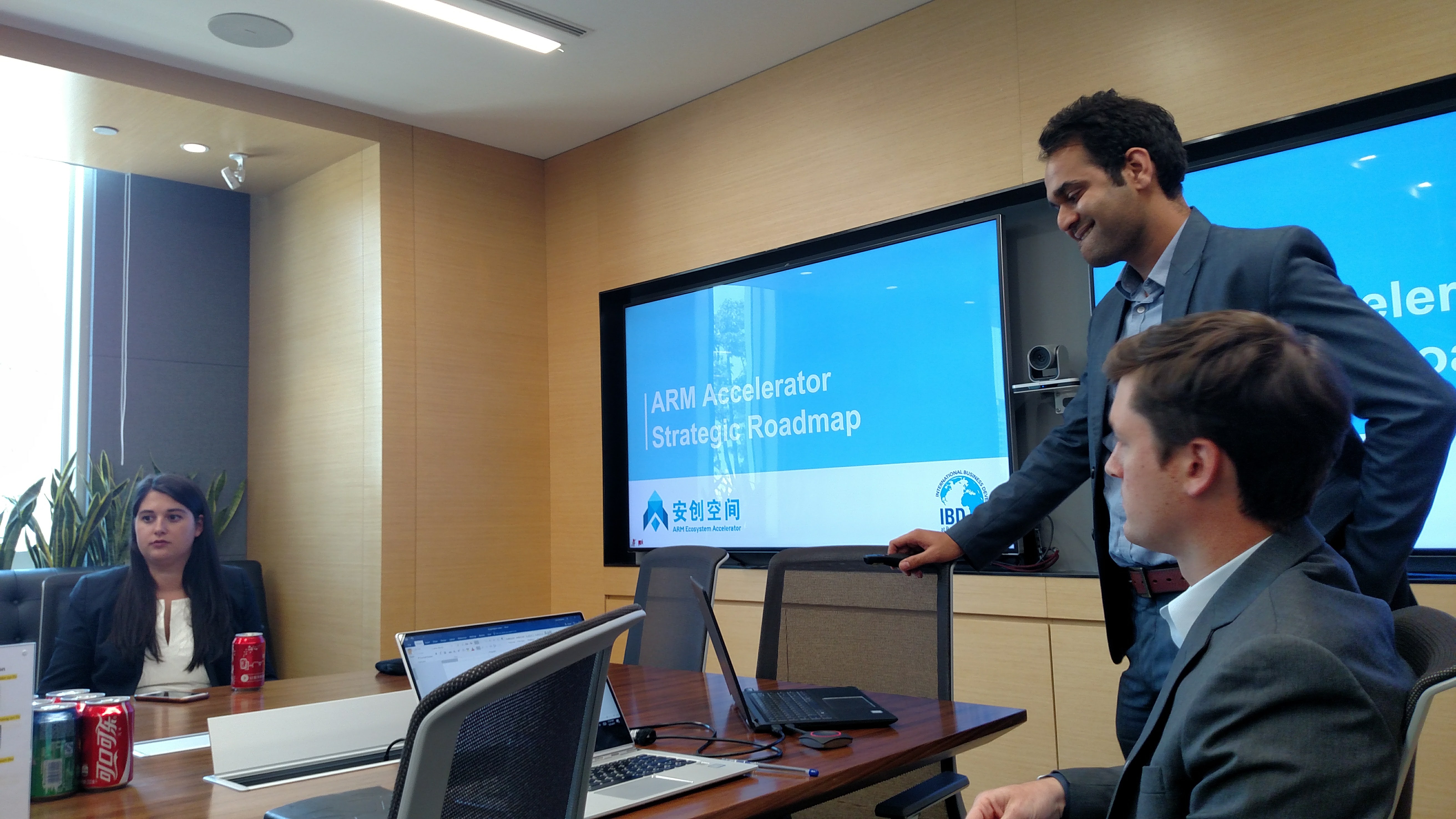
Our initial challenge was to advise ARM Accelerator on a strategy for attracting U.S. startups. We hypothesized that U.S.-based startups would not want to travel to China for the program, and anticipated recommending a Silicon Valley office. To test our hypothesis, we spoke with founders from 12 different IoT startups in the U.C. Berkeley ecosystem.
We were surprised to learn that virtually all of the founders had either already spent time in China, or anticipated going in the near future. The primary reason for Chinese travel was to connect with manufacturers, but several startups were also interested in meeting Chinese investors and customers.
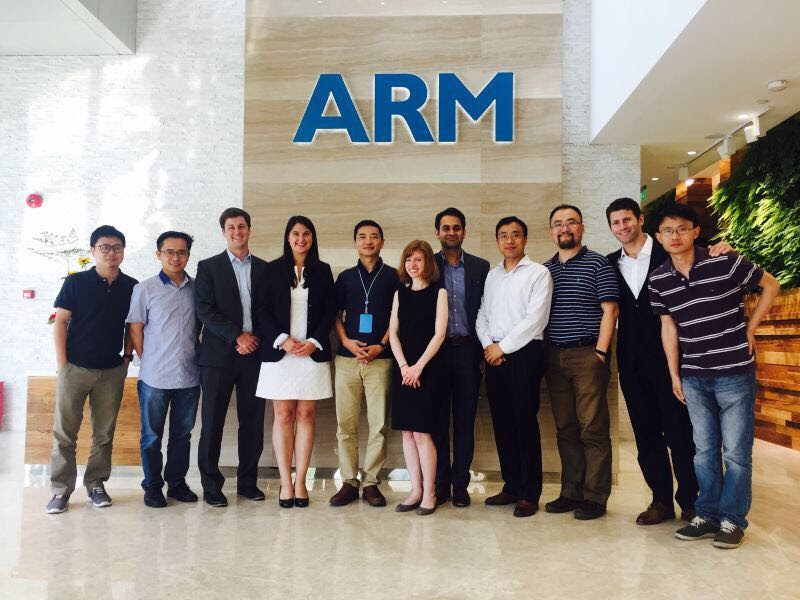
We also discovered that most startups learn about accelerators through their networks. The ARM brand is strong, but few startups had heard of ARM’s accelerator, underscoring the need for business development efforts and localized marketing content in Silicon Valley.
Evaluating the Accelerator Business Model
In the weeks leading up to our trip, we expanded our focus. At two years old, ARM Accelerator is still a startup, and they wanted insights into how other accelerators achieve financial sustainability. We analyzed successful accelerators from around the world, and compiled preliminary recommendations to test in-country.
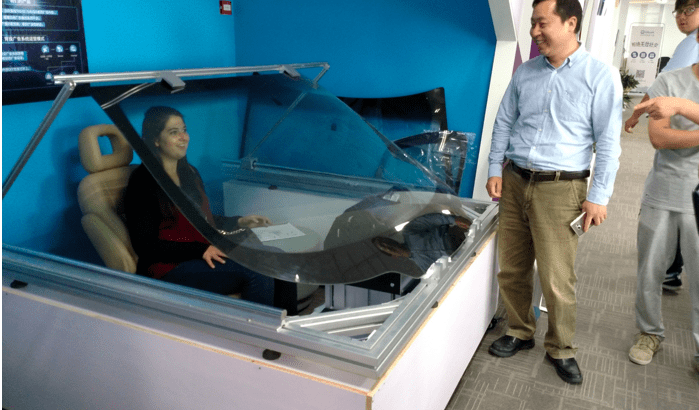
Day of Arrival
On May 12, we flew to Shanghai. None of us had ever visited mainland China, and we were eager to meet the ARM Accelerator team and learn more about the Chinese startup ecosystem.
ARM Accelerator founder Andy Chen and head engineer Shi Lei gave us a warm welcome, and briefed us on an itinerary packed with interviews. Over the following days, we met with ARM Accelerator graduates, venture capital investors, other accelerators, and the local government. We even attended a presentation in which ARM Accelerator companies pitched their autonomous vehicle technologies to representatives from BMW.
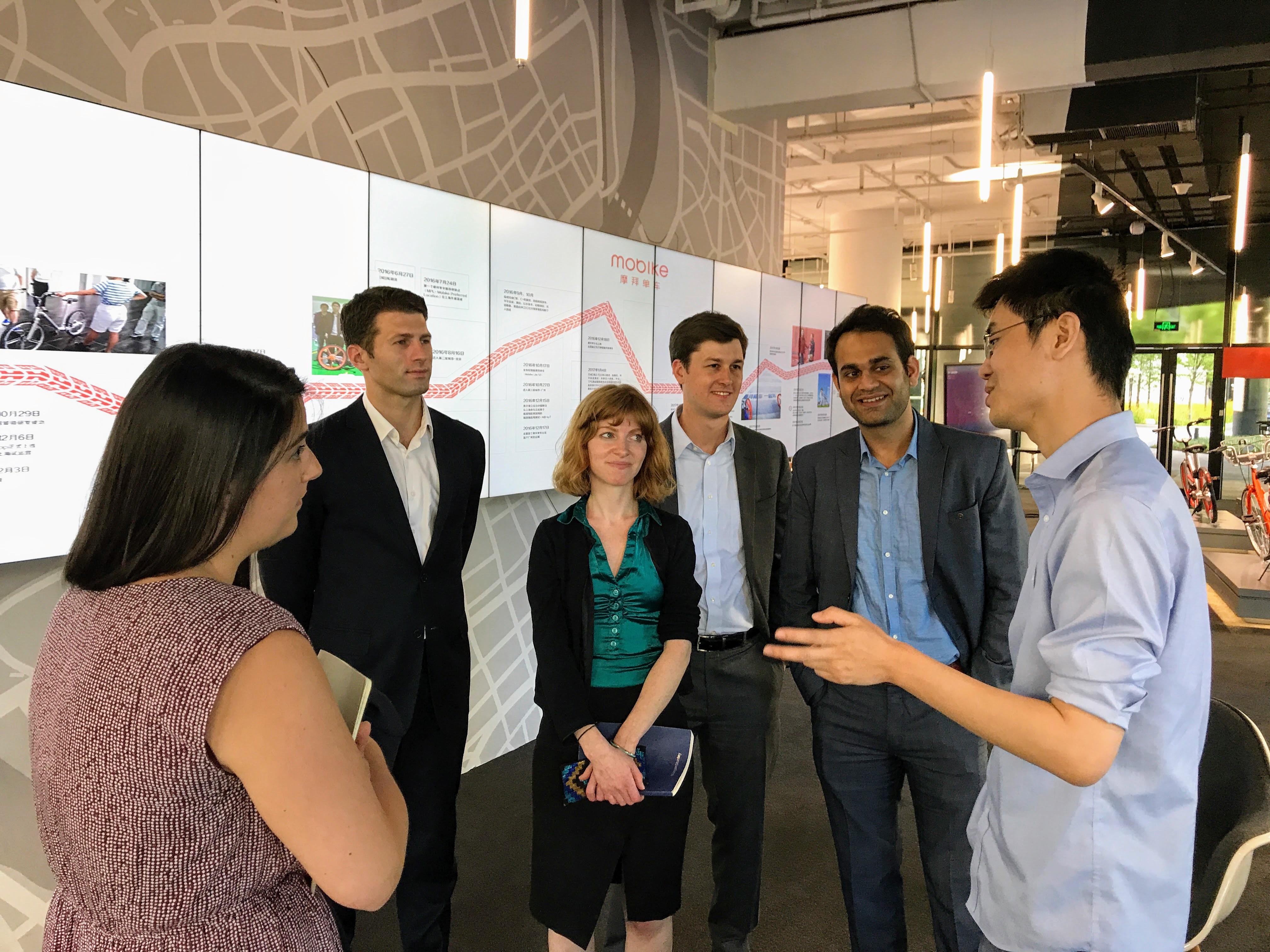
Interview Highlights: TechCode, Shanghai government, and MoBike
TechCode is an accelerator and incubator started in China, with locations all over the world. Daphne Han provided insights into the benefits of the accelerator for TechCode’s corporate sponsor. She also gave us a tour of their co-working office space, and IBD team member Jen got to test a TechCode company’s “Smart Windshield,” which uses Augmented Reality to provide real-time information to drivers.
Another highlight was our meeting with Zhang Lan from the Shanghai government’s Development and Reform Committee. Mr. Lan shared fascinating insights about the government’s role in supporting entrepreneurship, and the incentives available to ARM Accelerator companies.
Mr. Lan then brought us to the MoBike headquarters. MoBike is a bike sharing startup that has taken

China by storm, with support from the government. 25 years ago, Shanghai was full of bicycles, but their replacement with motorcycles and cars has exacerbated pollution. MoBike is reversing the trend, and we were impressed by the number of Chinese taking advantage of MoBike. MoBikes can be parked anywhere, and locked or unlocked with a smartphone app; each morning the bikes pile up in front of office buildings, and by evening rows of MoBikes surround the metro stations.
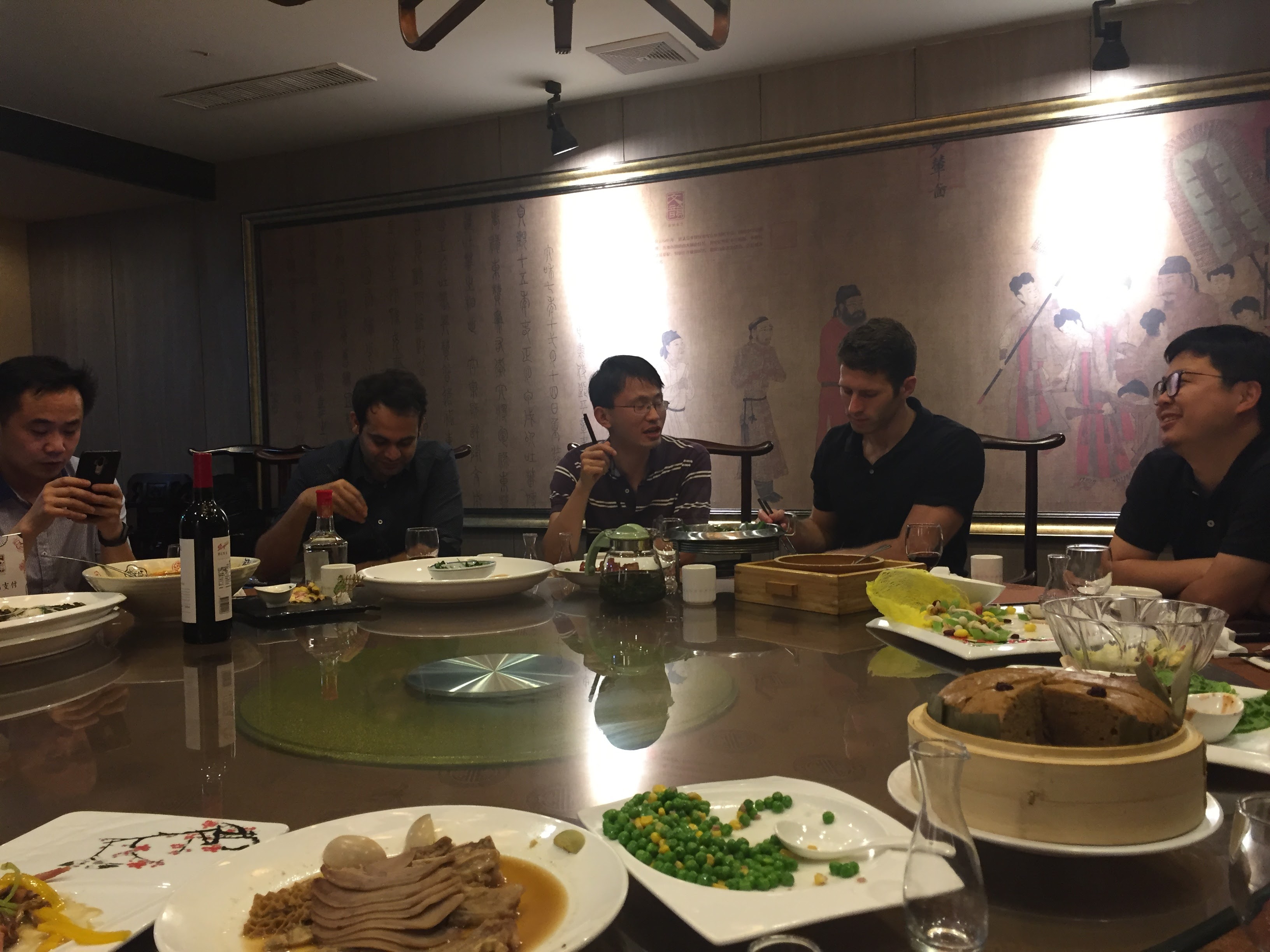
Eating our way across China
The team made the most of our free time by trying every dumpling we could find. We learned about the art of handpulled noodles, sampled Uigher-style barbecue, and tasted Schizuan Province’s spicy mala peppercorns. We even contemplated opening a Berkeley franchise of China’s popular Yang’s Dumplings chain.
Between meals, we climbed the Great Wall, explored Beijing’s Forbidden City, and hiked the mountains surrounding Hangzhou’s famous West Lake.
And throughout our trip, we were greeted by local Haasies. Alan Wu, President of ARM China and Haas MBA ‘97 provided valuable feedback throughout our project and shared his visions for China’s technological future.

And the Haas Shanghai Alumni group welcomed us with a happy hour, where we met two incoming classmates to the class of 2019.
After a successful three weeks in China, we are excited to continue following ARM Accelerator’s progress as they help build companies shaping the future of IoT.

